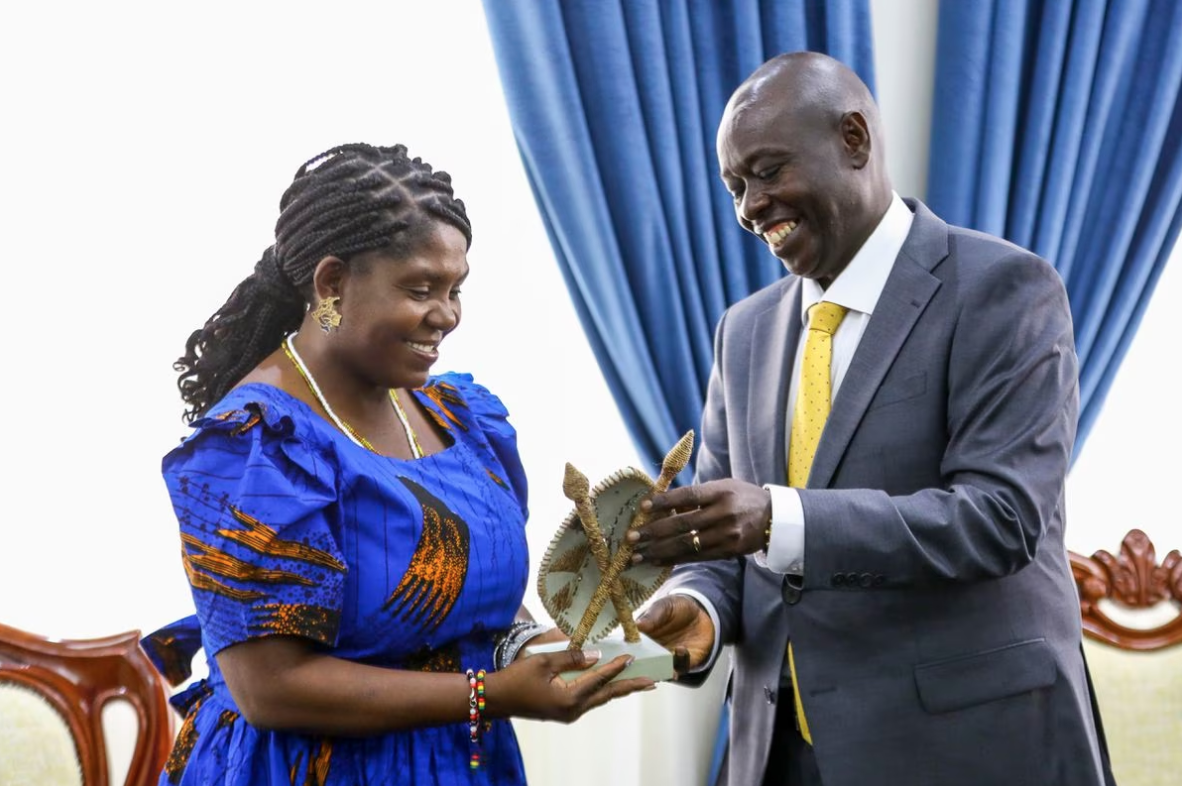Colombia’s Vice President Francia Marquez finalized her diplomatic tour in South Africa, Kenya, and Ethiopia, for which she has been heavily criticized. If this effort is consolidated, however, it could become a masterstroke of diplomacy in the global south, with implications for industry, trade, culture, and climate change in Africa and Latin America.
Few recent events have received as much banal, predictable, and farcical criticism as the vice president’s diplomatic tour of several African countries. There has been talk of the cost of fuel, the large entourage, and France’s perceived arrogance, among other issues. This only highlights the double standards to which we, as a society, hold the country’s first black female vice president.
However, there is no denying the impact these criticisms have had on public opinion. A Datexco poll indicates that more than half of Colombians disagree with the trip (compared to 29% who do) and that more than seven out of ten respondents believe that the vice president should explain herself regarding the trip and its costs.
Despite so much smokescreen, a legitimate concern arises: why should we prioritize diplomatic rapprochement with African countries, when we are economically more dependent on relations with the United States and the European Union?
The vice president has given some explanations on the search for this strengthening of diplomatic relations. “For many years, Colombia has turned its back on the African continent. […] In economic terms, if one looks down on a continent that has 1.39 billion inhabitants saying that there is nothing to do there, I think it is a very biased vision”. She also referred to the long history of conflicts and peacebuilding efforts in the region: “[Africa] is a continent of reconciliation and, on that point, it has a lot to offer to our country”.
This effort is part of the functions delegated by President Gustavo Petro in terms of strengthening international relations with Afro-descendant movements. So far, numerous agreements of understanding have been announced in the areas of trade, culture, and even gender, the latter through the “She Exports to Africa” program, which seeks to boost women’s economies in the country. Although these are already significant advances, if this strategy is consolidated, we could be witnessing one of the great diplomatic maneuvers of the century from the global south.
This political rapprochement, on the one hand, could be the prelude to a dynamic of coordination in international negotiation spaces such as the G77, a coalition of 134 developing countries that have been fundamental in advancing any political agenda at the United Nations. Latin America and the Caribbean also have much to learn from the African Union in terms of regional integration, considering that the latter has consistently presented unified positions in these spaces, contrary to the dispersed and divergent voices heard from this side of the Atlantic.
The emergence of this bi-regional coalition could cement the current leadership of Colombia and Brazil in the global fight against climate change by mobilizing a bloc as powerful as the African Union. While interregional conflicts over the distribution of scarce climate finance could generate friction, the alignment of the regions could serve to increase contributions from the global North.
In this context, priority should be given to the demand for resources for adaptation to climate change and progress in the creation of the Loss and Damage Fund, which was agreed last year at the COP summit in Egypt. In addition, the regions must demand global commitments to finance the protection of the Amazon and Congo basins (the two most important carbon sinks in the world) through debt cancellation instruments, among others.
This diplomatic effort should also be understood in light of the Re-industrialization Policy, which has been, perhaps, the only national government program that has received some consensus among the country’s sectors. This seeks to help the country “move from an extractivist economy to a knowledge-based, productive and sustainable economy” by strengthening the business and trade system, in order to prioritize sectors that were strong before the neoliberal opening of the 1990s, such as agro-industrial and pharmaceutical production.
However, this is not a strictly protectionist policy. On the contrary. It depends on strengthening trade ties with markets where these products can be competitive (not in the United States or Europe, but in Latin America and other emerging economies). Africa would be an excellent candidate, taking into account that the African Continental Free Trade Area is the largest in the world and that Colombia’s sales to African countries increased by 158% in 2022 compared to the previous year.
The vice president’s diplomatic tour promises. However, important sectors of the country will not be waiting for her with open arms, and racism and misinformation have a lot to do with this. It is also true that there has been a lack of a comprehensive strategy to communicate the importance of this diplomatic visit from the vice presidency and in coordination with other agencies of the national government. And although it may seem a detail, this is no minor matter. This strategy requires a radical change of perception so that we can understand ourselves as a country that can go beyond exporting raw materials and cheap labor to the global North. We must appropriate that creative energy and learn from other regions with similar challenges.
Meanwhile, opposition senator María Fernanda Cabal tweeted a video of the vice president dancing to African rhythms during the tour with the following text: “This is ‘living tasty”. Beyond the irony, this statement is curious: living tasty, of course, is smiling, dancing, and being in touch with the roots, with the matrix. In fact, the colonial wound can begin to heal from this conversation. How beautiful it is to see the representative of all Colombians rebuilding the umbilical cord between our peoples through art, love for the territory, dance, and smile.
*Translated from Spanish by Janaína Ruviaro da Silva











